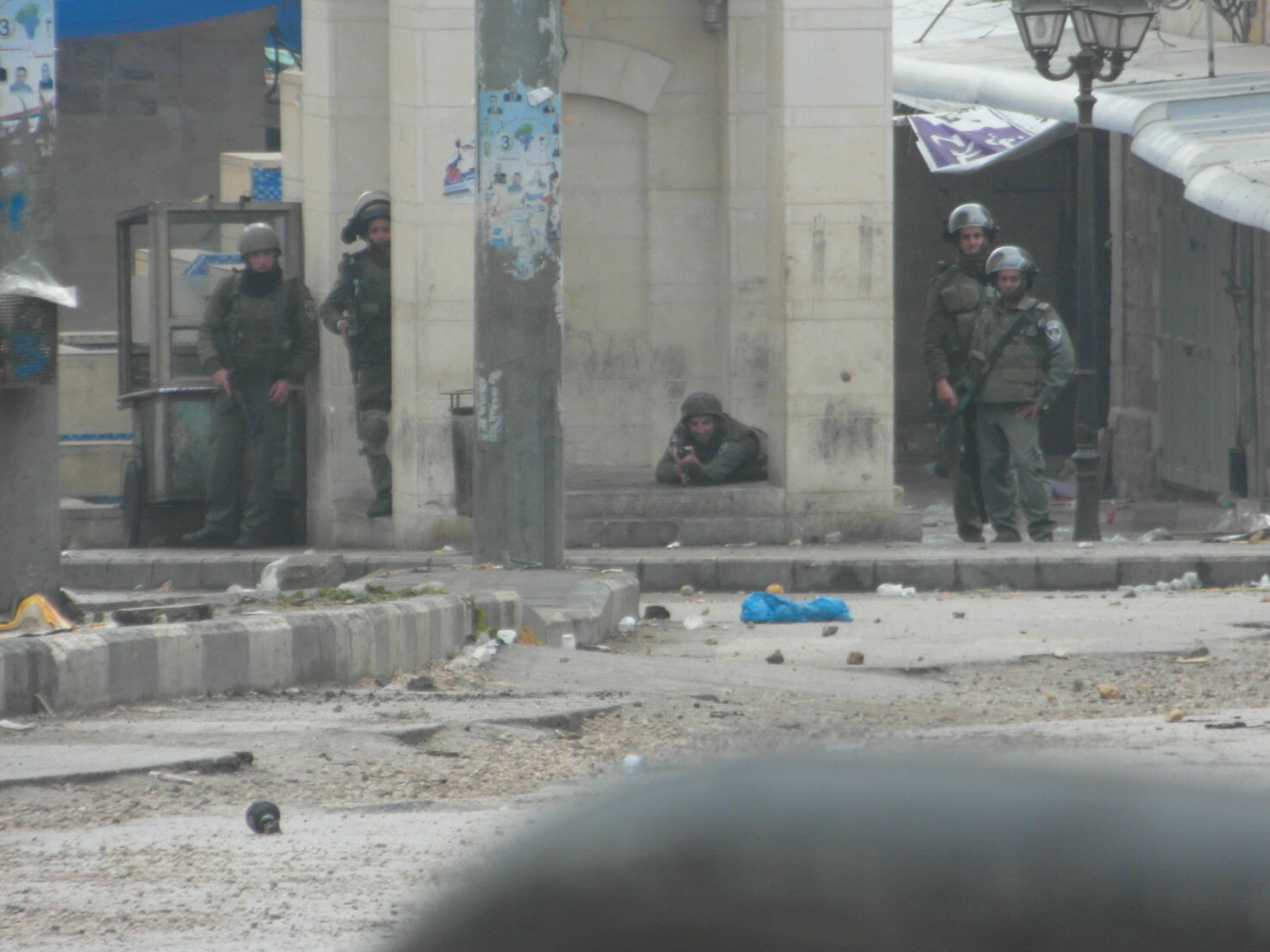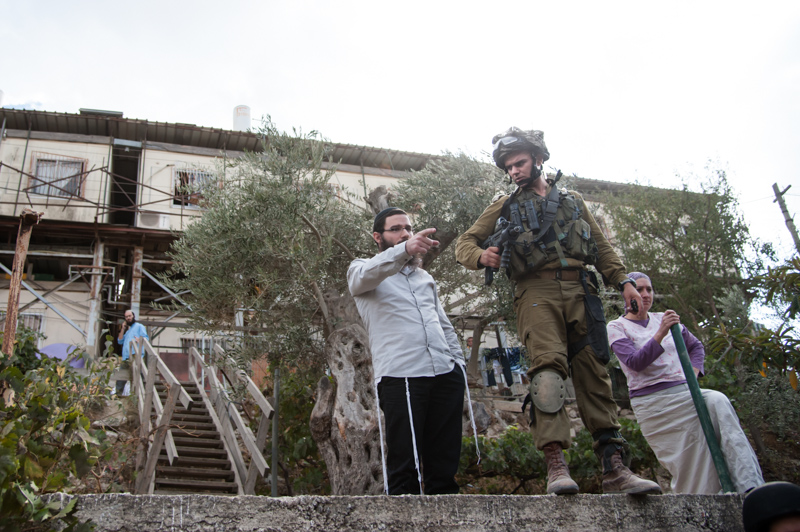Year: 2012
-
Teenager critically injured in Hebron clashes
by Team Khalil 13 December 2012 | International Solidarity Movement, West Bank Nasser Sharabati (16) was shot three times by live ammunition on Thursday night during clashes in Hebron. He in Hebron’s hospital and in a critical condition. Around 90 people were injured and had to receive hospital treatment. It is evident that Israeli army snipers…
-
Settlers attack children in Hebron
by Team Khalil 13 December 2012 | International Solidarity Movement, West Bank After school on the 13th of December in Al Khalil (Hebron) two children were attacked by a group of settlers. Younes Azzeh, age nine, and his sister Raghad Azzeh, age fourteen, were attacked by three male settlers that are speculated to be between…
-
Israeli forces kill teenager on his 17th birthday in Hebron [Updated]
by Team Khalil 12 December 2012 | International Solidarity Movement, West Bank Palestinian youth Mohammad Ziad Awwad Salayme was shot dead on his 17th birthday in Hebron. Live ammunition was fired injuring another man and several journalists had to be hospitalised after being beaten on the street. Clashes between Palestinians and the Israeli Occupation forces…



![Israeli forces kill teenager on his 17th birthday in Hebron [Updated]](https://palsolidarity.org/wp-content/uploads/2012/12/1132.jpg)